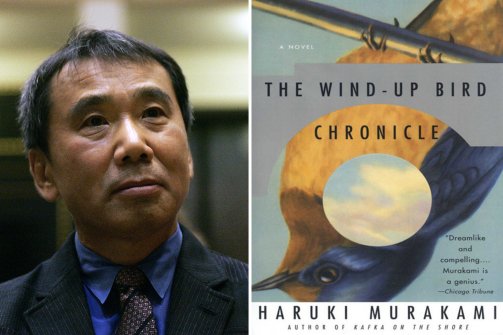Unless you listen to this farcical, self-deprecating talk, and think deeper.
Monthly Archives: August 2013
Life, illusion, and sanity
Dropping out: is it a wise choice?

The man and his trashy freezer (animation)
It’s short but scintillating, homely yet touching, and it does have one important message: there is someone out there who is always ready to accept whoever we are.
Still more: a compliation of weird Japanese ads
And don’t forget there’s ‘Lainbow Mountain’ too.
This movie is only for ‘forever alone guys’
Joaquin Phoenix returns to sanity after all the idiosyncrasy he made in ‘I’m Still Here’ by falling in love with a computer operating system voiced by Scarlett Johannson, whose sexy voice probably transcends that of Siri. That’s awesome.
At least, this is not the typical romantic-comedy flick you will die for watching.
The magical world of Haruki Murakami
There is more to the reality he wants to convey through his mind-bending narratives, but some literary critics are still unsure what he actually wants to convey about.
Read the full article on The Daily Beast.
Excerpt:
With Murakami, there are certain motifs that appear again and again, and for which he’s sometimes mocked—cats, wells, baseball, and jazz, to name a few. Thematically, Murakami’s work explores the complexities of relationships, sex, self-discovery, the influence of Western culture in Japan, violence, and the reverberations of World War II. “You get a sense of the oddness and the eeriness of a modern culture, I think, which was born from a great act of violence,” said John Freeman, the editor of the literary magazine Granta. “His work is full of monsters and earthquakes.” Freeman said there are two things that make it hard for Murakami to win big literary awards and gain unmitigated praise. The first is that his stories have an improvisational feel to them, even if they weren’t actually improvised. The second is that “there’s a silliness and comedy to his work, and people who have comic impulses I think are always underrated in the short term.”
Inside China’s otherworldly political system
How overthinking kills
Cartoon: by Charles Barsotti
We are dying from overthinking. We are slowly killing ourselves by thinking about everything. Think. Think. Think. You can never trust the human mind anyway. It’s a death trap. – Anthony Hopkins
Only in Indonesia: waves of trash
No, this is not part of ‘Wonderful Indonesia’ you always see advertised in foreign media. But, you can’t deny the reality as well.
And this is what the photographer, Zak Noyle, told after taking the picture, as seen above: It was crazy. I kept seeing noodle packets floating next to me. It was very disgusting to be in there; I kept thinking I would see a dead body of some sort for sure.
Noted: bulk of our nation hasn’t succeeded in maintaining the pristine, otherworldly beauty of our country. And see, it’s all happened.
Read the full article on Huffington Post.



